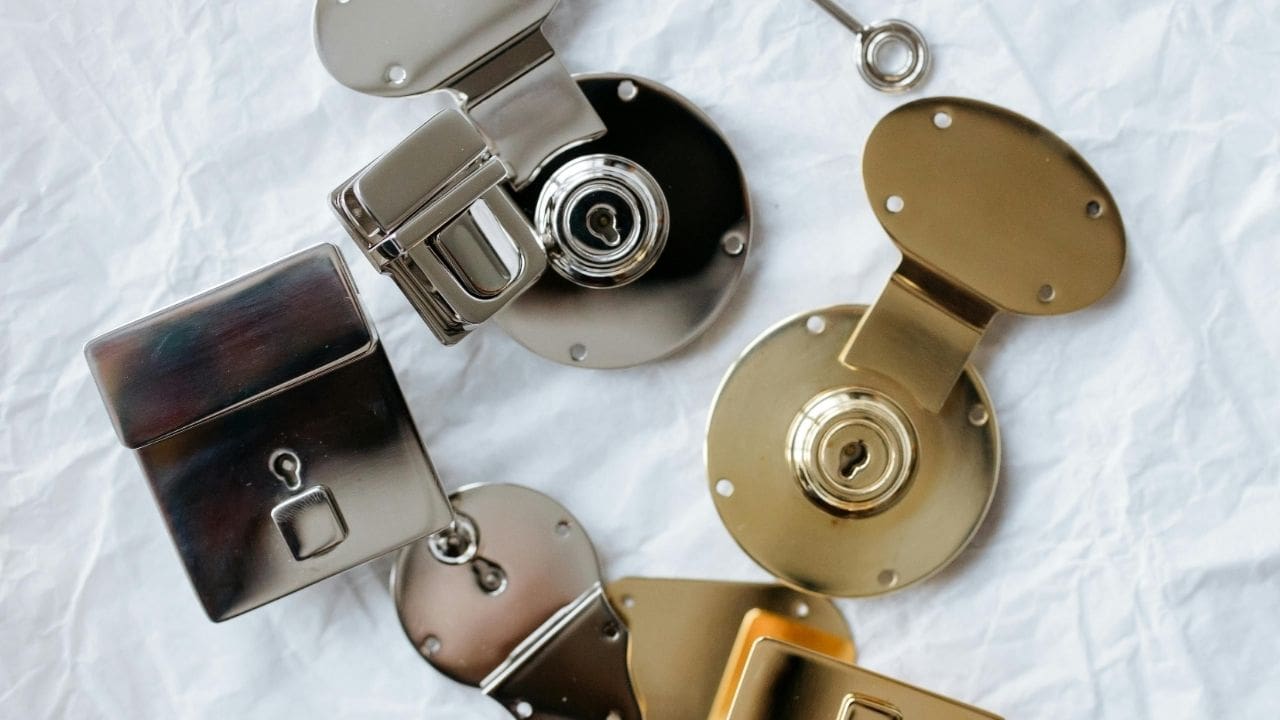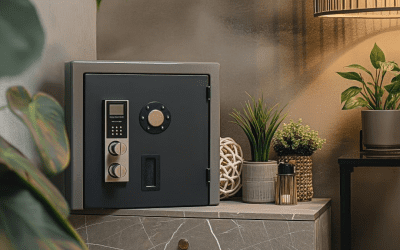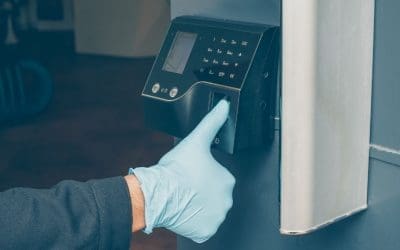What Are Dial Locks?
The dial locks (also known as combination locks) are mechanical locks, which means that the user must rotate a dial to a certain pattern of numbers to unlock. Consider gym lockers, safes or conventional combination padlocks.Pros of Dial Locks:
- Batteries and electricity were not required.
- Durable and long-lasting
- Difficult to hack digitally
- Low maintenance over time
- Economical to most of the residential and commercial applications.
Cons of Dial Locks:
- Takes longer to open particularly during emergencies.
- The unlocking can be challenging in case the combination is forgotten.
- Does not work well in busy locations where speed is required.
- Easily subject to physical abuse, unless constructed hard.
What Are E-Locks?
Electronic locks also known as e-locks are keyless locks that are controlled by a keypad, biometric sensor, smartphone application, or key fob. These are used in the current homes, offices and even rented houses.- Keyless convenience No keys to lose or carry.
- PIN codes, fingerprints or mobile applications make it easy.
- Can log entry time and user access (good when it comes to businesses or rentals)
- Usually incorporated in intelligent homes.
- There are models which can be locked/unlocked remotely.
Cons of E-Locks:
- Power operated by battery, and thus can stop working.
- More expensive than manual alternatives.
Prone to hacking or computer malfunctions. - Needs frequent updates or reformat.
- Professional installation is required to be reliable.
E-Locks vs. Dial Locks: A Comparative Study
Don’t Forget: Lock and Door Maintenance Is the Key
With an e-lock or a dial lock, maintenance will be regular to achieve long-term performance and security.E-Locks: Have battery checks with 6-12 months between, maintain firmware and do access testing.
Dial Locks: Apply lubricating oil to the mechanism every now and then, keep dials turning freely, and keep them out of the air and water.
In both types, we suggest that a professional lock and door maintenance inspection, at least once a year, should be done to help identify the first signs of wear, alignment problems, or possible failures.
Lock Out: 24/7 Emergency Locksmith
Regardless of the quality of your locks, there is always a possibility of failure, or being locked out, and this happens at the most inappropriate time too. Your smart home is not compatible with your key or it’s an antique safe that you cannot unlock; no matter the case, it is a good idea to have a 24/7 Emergency Locksmith that will come to your rescue.- You desire a manual, automatic solution.
- You do not want to be bothered with batteries or technological issues.
- You’re on a tighter budget
- You require low risk security (e.g. lockers, garages).
Choose an E-Lock if:
- You like the keyless access and remote access.
- You have to work with several users (e.g., Airbnb, offices).
- You desire to be able to integrate with smart home systems.
- You do not mind routine maintenance and software updates.
Our suggestion: The high-security buildings tend to have a mix of the two – dial locks in some of the locked storage spaces and e-locks in the daily door or other common access points.
Frequently Asked Questions Frequently Asked Questions (FAQs)
Can e-locks be hacked?
Yes, as any other computer system, e-locks are susceptible to cyber attacks when they are not well designed or maintained. Select models that have good encryption and upgrade programs on a regular basis.




